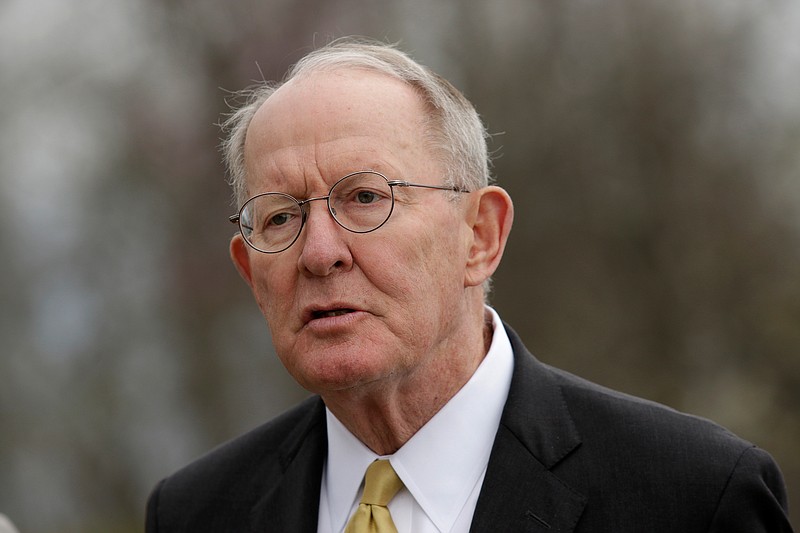Fewer insurers
Since the health exchange program began under the Affordable Care Act in 2014, the number of insurers offering individual plans has declined in Tennessee 2012-23 2013-18 2014-8 2015-9 2016-11 2017-6 2018-3 2019-5
The chairman of the Senate health committee today welcomed the drop in premiums proposed by Tennessee's biggest health insurers for 2019 but said that premiums could be even lower if Democrats didn't block changes to the Affordable Care Act, or Obamacare.
U.S. Sen. Lamar Alexander, R-Tenn., said premiums for individual health plans under Obamacare nearly tripled in the past four years prior to the announcement this week of rate cuts planned for 2019 by BlueCross BlueShield of Tennessee and Cigna Insurance, the state's biggest health insurers.
"Today's news is a welcome step for Tennesseans after facing an over 176 percent increase in health insurance premiums since Obamacare took effect, but the news could have been even better," Alexander said. "Since Democrats in Congress have elevated Obamacare to the 67th book of the Bible, and have blocked even minor changes to the law that could have lowered rates by up to 40 percent, it is up to the states and the administration to continue to help lower premiums."
Alexander praised Tennessee insurance commissioner Julie McPeak for her efforts "to bring more choices and lower prices to Tennessee" and Alexander said he "will continue working with the Administration as best as I can on ways to give states greater flexibility to lower premiums."
On Wednesday, BlueCross BlueShield of Tennessee, the state's largest carrier, filed a rate request with the state to lower premiums on individual plans next year by an average 10.9 percent. Cigna requested a 4.8 percent decrease, and Oscar requested a 10.8 percent increase.
Bright Health and Celtic announced that they will begin selling health insurance in Tennessee.
Despite the addition of the two new insurers next year, the number of participating insurance companies offering individual plans in Tennessee is still only a fraction of the 23 providers offering such coverage in 2012 before Obamacare began.
Alexander and other Republican leaders last year pushed a reform measure that would grant more flexibility in benefits and rate design for states while provide $10 billion annually for invisible risk pool/reinsurance funding in 2019, 2020, and 2021.
Health care experts at management consulting firm Oliver Wyman released an analysis showing that the passage of the proposal to fund the cost sharing risk pools for three years would help lower premiums by up to 40 percent in the individual market and provide insurance coverage to an additional 3.2 million individuals.
But the plan failed to get much support from the Trump administration or Democrats in Congress.
"Last year, every Democrat voted against repealing and replacing Obamacare which would have given Americans more choices of insurance at lower cost," Alexander said.
But advocates for Obamacare said rates were pushed higher by the uncertainty about cost sharing payments and the future of the program when Republicans vowed to repeal the Affordable Care Act.
"People who were discriminated against by insurance companies before Obamacare was passed, such as women and people with pre-existing conditions, are tired of the blame game Senator Alexander is playing," said Jacy Warrell, executive director for the Tennessee Health Care Coaliton. "Senator Alexander failed to keep his promise to pass stabilization efforts. Rates have decreased in absence of attempts to repeal Obamacare, not for anything congress has done to improve them."
